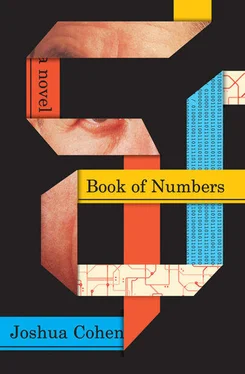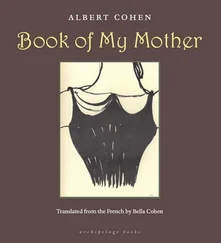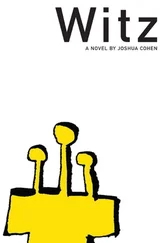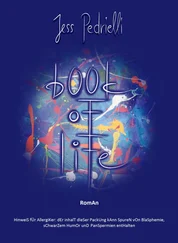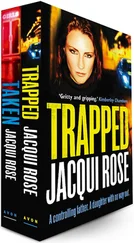As for the older houses still referred to as Jugendstil, the houses that’d survived the fires — to become cherished only because of that survival, because in their primes they might’ve been among the plainest façades around — next to their squat concrete heirs they seem memorial, like inhabited memorials to themselves.
\
Insert a line about the weather. Insert a line about how describing Berlin is like describing Berlin’s weather — the moment it’s set, everything changes, the wind changes direction, the rain stops, but only for a block of Mitte, the sun rises over a wan villa in Wannsee (west), and sets over the graves in Weißensee (east), and the only consistency is the mercury falling.
The lindens were being left by their leaves, and I blew through in a swirl of emergency colors. A drunk gastarbeiter in demidenim overalls stopped me to bum a smoke, but pretending to be a tourist, I turned him down — me, who never turns anyone down.
I missed the tramstop, turned corners strange and prefab, a prefabricated strangeness, encountering only signs standing for things I didn’t need, only signs I didn’t know what things they stood for and so didn’t know whether I needed them or not. An ATM, or whatever that was in German — that’s what I was after, though I would’ve settled for locating even just the full meaning of ATM at its source, automatic teller machine, automated teller machine, automatic automated I’ve never felt so removed or dissevered.
It wasn’t that I had trouble finding a bank — I had trouble finding an untried bank. Until the FinanzCenter Moabit, a scruffy cashpoint behind decals and defaced perspex. I slotted my card to access the vestibule, which savored of wet German shepherds, unless in Germany they just call them shepherds. I swiped the card strip out. Geldautomat. Selected English. You can’t go wrong with English. My PIN, why not write it? 179121? My birthday. Backward.
“Transaction denied,” greened across the screen. “Contact your financial institution.”
But I just did, sorta kinda.
I centered my face within the CCTV bauble and looked deep into my reflection like I was looking deep into an underground lair under the grounds of the White House, imagining my sleeplessness blown up to its pores on the defcon board for the edification of two presidents, Kori D and that other one, intel personnel and Congresspeople all taking a break from their mahjong to tune in, and though I was fairly sure that this Geldautomat didn’t have the audio capability for them to also hear me, I said, “Library, Staatsbibliothek.”
Read my lips why don’t you.
Coming out and mind the bikelane, resist the urge to shove the passing cyclists into the passing smartcars, though the scrimpy smartcars might get the worst of it. I didn’t know whether to ask directions in this language or try and ask in German, didn’t know whether to trust someone who responded or someone who refused, and follow them like the street was following me, over the Spree and into the Tiergarten.
I avoided the paths to trail along the bisector road toward the roundabout’s column, which bore a statue of a lady holding a wreath and staff all so goldsilver precious that it had me appreciating NY’s Liberty for her copper, the metal that conducts our lives. Scattered crumbs, pigeons walking like Egyptians pecking crumbs, bench, condom in a bush. Keep walking, trying not to recall why I hate parks. Thank Rach and Christ I was out of the trees and back in the traffic again.
I went among embassies and consulates, and considered leaving myself on a doorstep and staying awhile like Balk, but I wasn’t able to sort through all the tricolore.
Potsdamer Platz splashed ahead, and the crossing’s white slashes on black asphalt reminded me that prisoners don’t wear the striped uniform anymore, which must’ve been retired after everyone got lost behind the bars and electrified wires.
\
The Staatsbibliothek — a sleek airporty shell. Braze podlighting, hypoallergenic concourses. Switchback mezzanines jutted above the stacks. The ceilinged PA speakers were about to announce that boarding would commence to Belletristik, or last call for Flight 296.1.
That’s the only decimal system thing I know—296.1, “Religion, Other & Comparative Religions, Judaism, Sources of.” That’s how to find Jews in the library.
I thought the hush of the place would take the edge off — it didn’t. The modularity rankled me, the ranks of tables and chairs and the students too, interchangeable recessives, receding into their typing, without a backspace typing. All had laptops of their own, lonely and attentionless I can’t be by myselftops. Whatever they were doing, it was too effortless for work. Every table, though, had its mechanical Turk, at the head or the foot, at odds. A guy or girl furrowing a textbook in either risk analysis or hospitality studies.
Beyond them were the public terminals. Radical queer crustpunk skinheads who weren’t skinheads and just unaffiliated opiated homelesspeople, geriatrics switching between pairs of bakelite glasses and clamping down their headphones — they sat in neat interdigitated rows at new unibody Gopal Go 2.0s, searching.
All that Aryan lucence, the sham race purity of Gopal’s product design — I kept spotting him, I kept hallucinating him. Maleksen.
Not among the users, but among the machines.
It took me a moment to understand why: Maleksen — there’s no other way to say this — was like a Gopal device. He had that whiteness, that untouchably smug whiteness, that gloating, that crisp compact perfection. Everything so concentrated it was like his insides were his outsides and were muscle, and that muscle was always flexed. A processor torso curved into a nonadjustable head, a quadrat Gopal monitor. And that jagged scraping between them, across his laryngeal mass, like a hot knife had scarred him with thick and thin bars, was the barcode of his specs. Scan him and be intimidated by his dysfunction.
If he’d brought me what Balk owed me I wouldn’t have come. Not that I had a clue what I was going to do besides maybe write Aar, maybe Cal. I looped around to the infodesk and signed for the next computer slot available. Cinching my tote closed throughout so that the librarian wouldn’t notice I already owned a computer, and I’d have to explain how its modem had died, how the dying Founder of the world’s most profitable because most complicit tech company had taken off his belt and used the buckle’s prong on it.
The librarian wheeled around with my terminal number and time — I’m presuming it’s acceptable to mention that he was in a wheelchair.
There was an hour’s line to get online alongside unwashed Gypsies and jobless Slavs.
So I went browsing, or I guess it’s not browsing if you know what you want. I wanted Keine Familie ist ganz . That’s what the translator or publisher had titled my book. Retitled it for appeal, I think. They never even sent me a copy or review clippings, or royalties. I don’t remember it surprising me that Germany was the only foreign market to buy the rights, though in the immediate aftermath of American publication I don’t remember anything surprising me. Anyway, Germans buy everything Jewish, it’s compulsory since reunification, it’s in their constitution. It doesn’t even matter whether the topic’s Jewish, provided the author is, if only just half or mischling like Caleb, or if the book has at least one character who visits a rabbi in Brooklyn or a cemetery in Queens, to say oy gevalt chutzpah bupkes, amen.
Читать дальше
